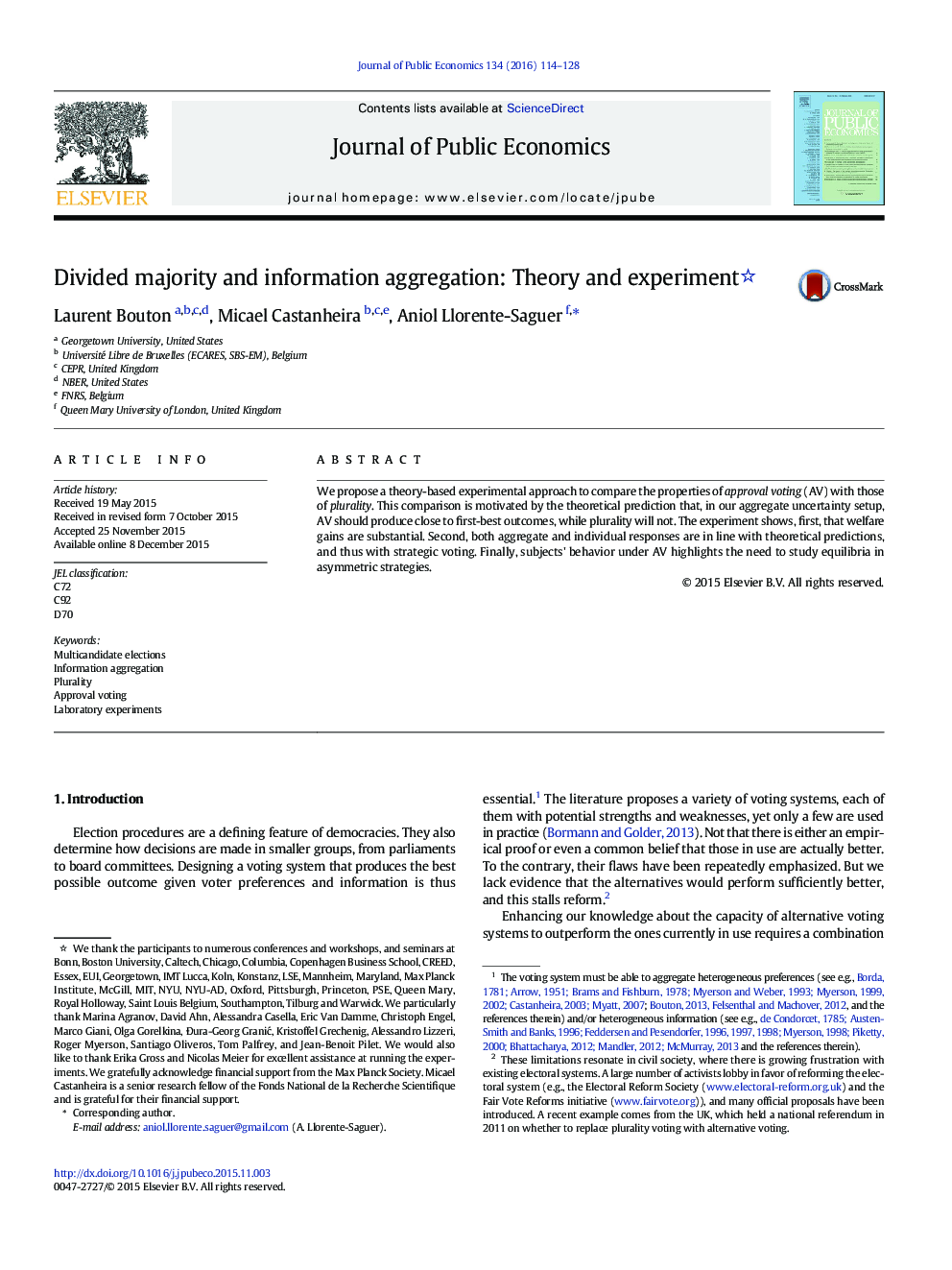| Article ID | Journal | Published Year | Pages | File Type |
|---|---|---|---|---|
| 968656 | Journal of Public Economics | 2016 | 15 Pages |
•This paper proposes the first experiment on multicandidate elections when voters have common values•We compare plurality and approval voting, both theoretically and experimentally•Under plurality, there are multiple equilibria. Experimentally, we observe coordination failures and welfare losses.•Under AV, the equilibrium is typically unique. Experimentally, we observe higher welfare gains than predicted by theory.
We propose a theory-based experimental approach to compare the properties of approval voting (AV) with those of plurality. This comparison is motivated by the theoretical prediction that, in our aggregate uncertainty setup, AV should produce close to first-best outcomes, while plurality will not. The experiment shows, first, that welfare gains are substantial. Second, both aggregate and individual responses are in line with theoretical predictions, and thus with strategic voting. Finally, subjects' behavior under AV highlights the need to study equilibria in asymmetric strategies.
